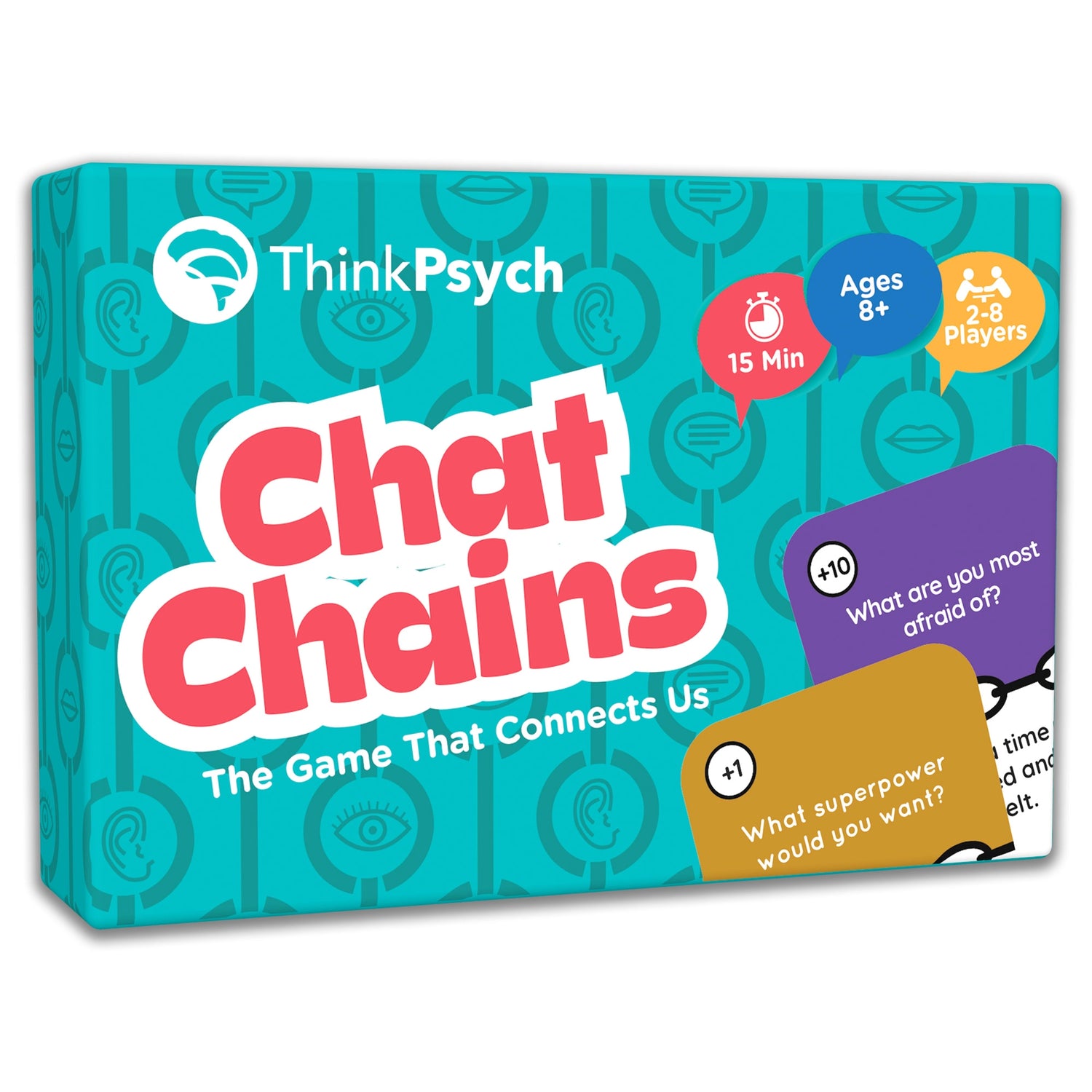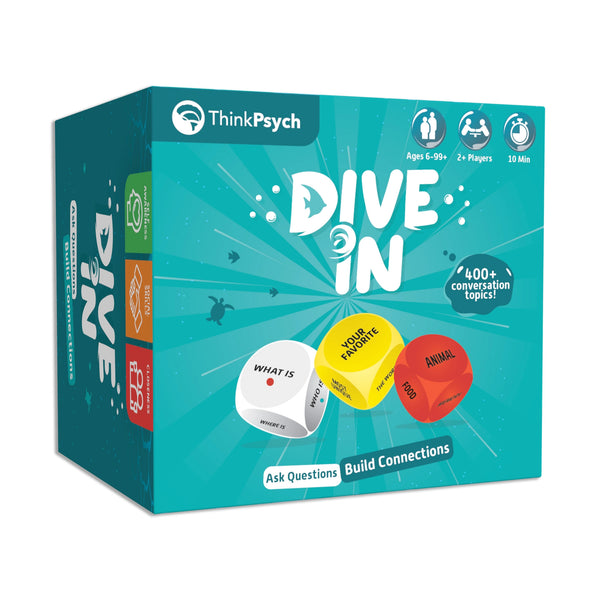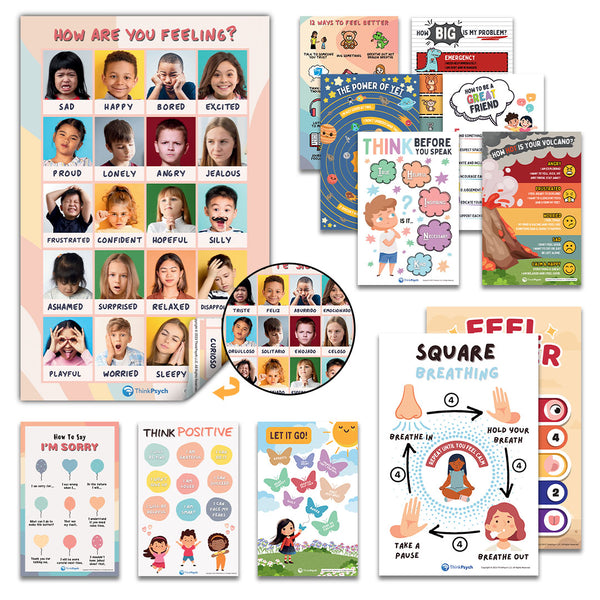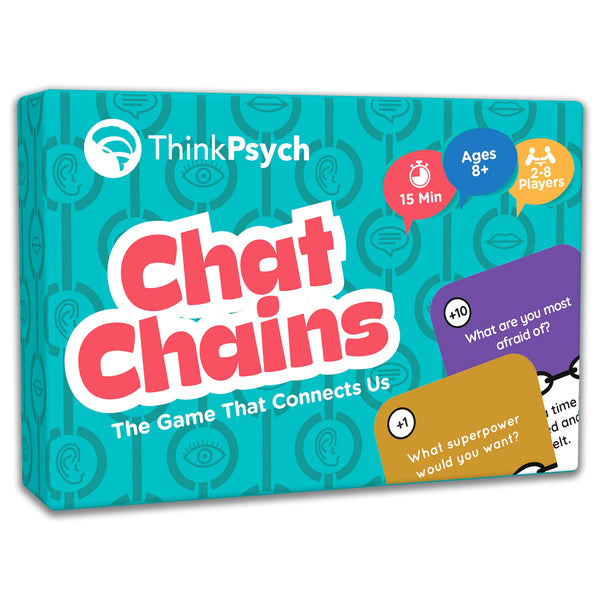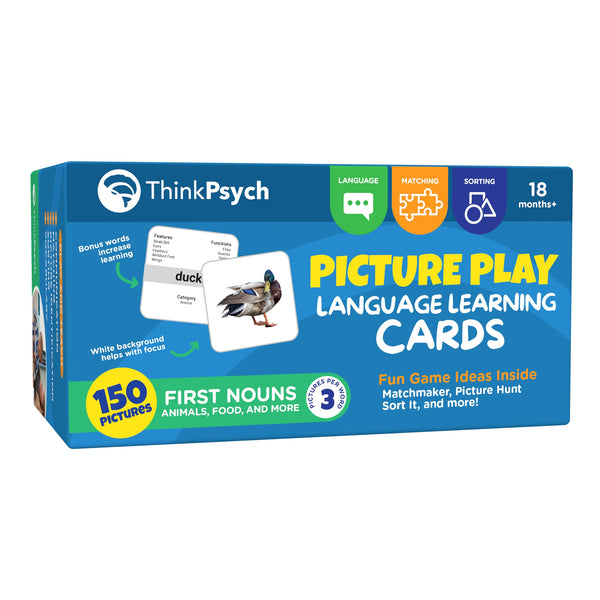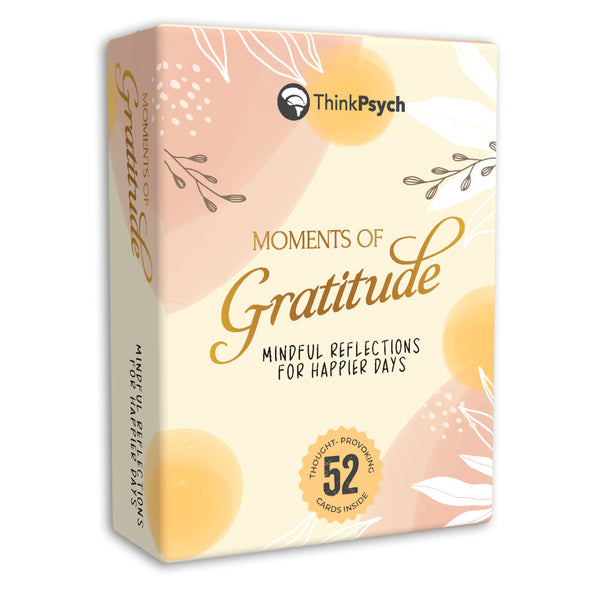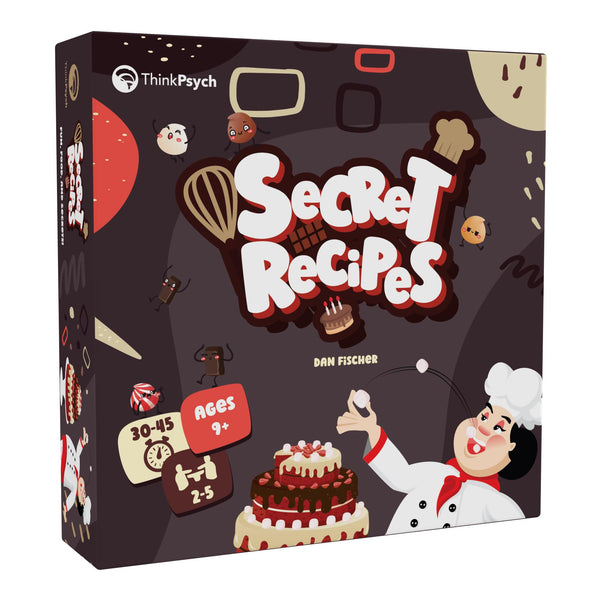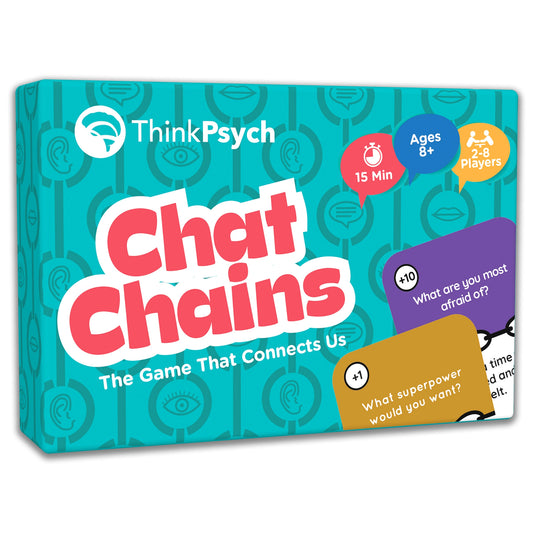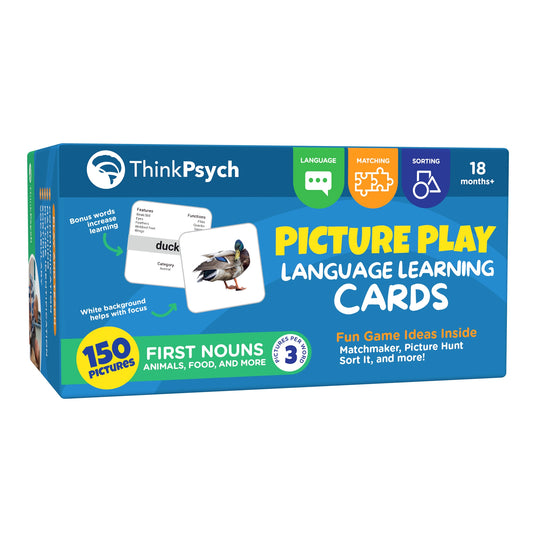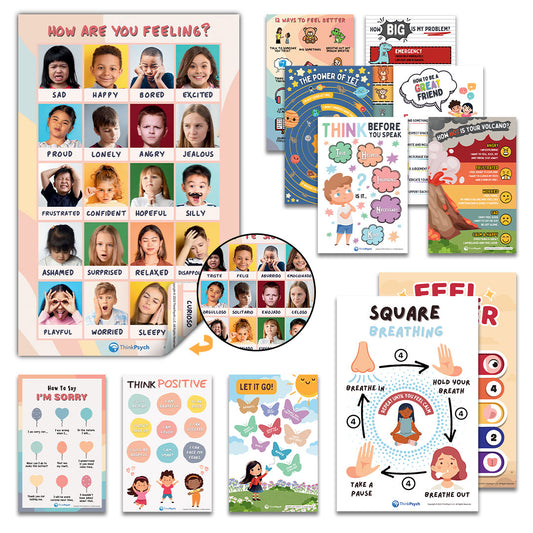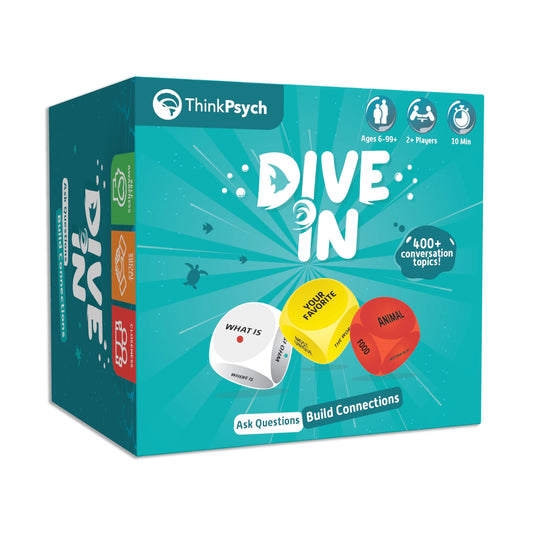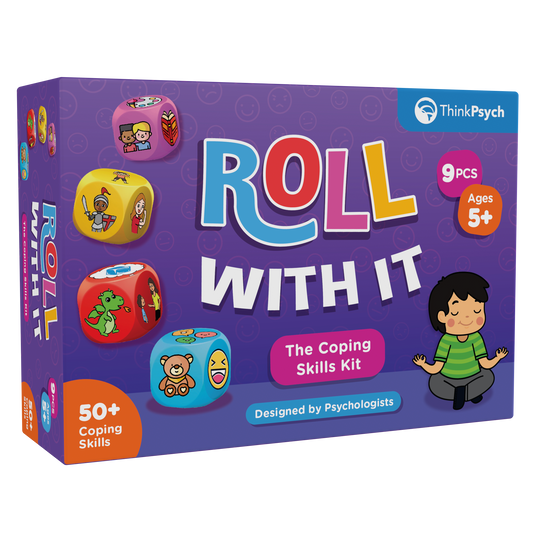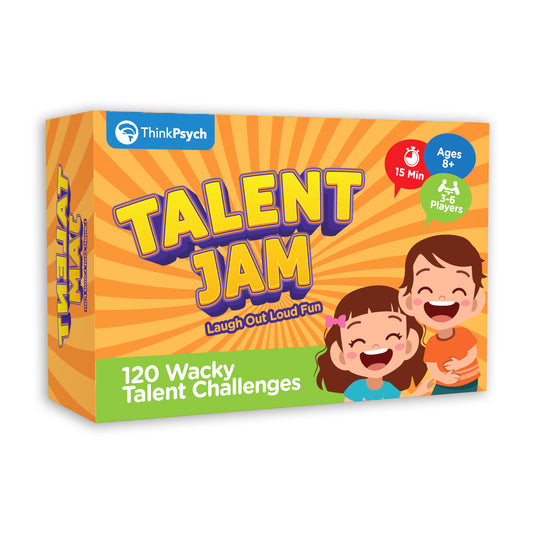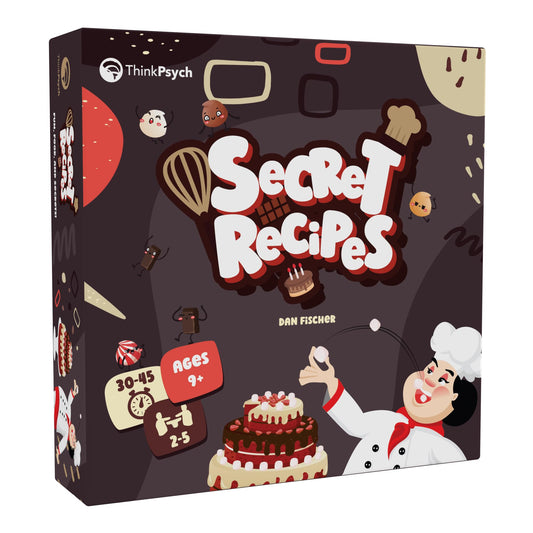
Social Emotional Learning for Dealing with a Difficult Friend
Share
One of the most important aspects of social emotional learning (SEL) is knowing ourselves. Whether it’s through understanding our emotions or our strengths and weaknesses, this knowledge is the key to understanding others. And while knowing ourselves will help us foster healthy relationships, some can be more difficult than others.
Even for a self-aware person, there’s a good chance they’ve come across people who don’t possess these skills. It’s even possible that they’re close with someone who lacks these life traits. But like many of life’s hardships, dealing with a difficult person is hard to avoid entirely.
Fortunately, SEL offers a multitude of methods for dealing with a difficult friend in a relationship. Whether your child wants to employ self-awareness or create boundaries, there are successful strategies for navigating the relationship. Visit us at ThinkPysch today to learn more about how social emotional learning can help with relationship building!
Use the S.T.O.P. Method
It’s easy when dealing with a frustrating situation to want to just get mad. Whether you’re disagreeing about something or simply feel disrespected, defense can be the initial human instinct.
But for a child dealing with a difficult friend, it’s important to employ skills that can move them past the moment. That’s why the S.T.O.P. method can be the perfect place to begin.
When they’re in the middle of a situation, they may want to do the following:
- Stop what they’re doing
- Take three deep breaths
- Observe how they feel
- Proceed with kindness and compassion
There’s no doubt that it can be challenging to take a step back. However, it’s removing themselves from the emotion of the moment that will enable them to move past it. Practices like breathing techniques and daily meditation can even help to inspire this approach! Before they react, be sure they take the time to stop and focus.
Think Of How They See It
When we are dealing with a person who’s difficult or causing us difficulty, it’s easy to become emotionally charged. And unfortunately, when emotions come into the mix, it’s hard to find common ground or come to a consensus.
Before jumping to conclusions, have your child consider where the difficult friend is coming from. Is there a good reason that they are upset? Is there some aspect of the conflict or situation they’re not seeing? Do they have a different background or outlook that may cause them to see things differently?
Once we’re riled up, it can be hard to see past our own perspective and grasp the situation. But by taking a moment to consider the way another person feels, it may reveal another way of looking at things.
Consider Their Part in the Conflict
When it comes to difficult situations, it’s common to automatically assume the situation or other person is the problem. But because the nature of conflict is complex, there’s a good chance we have a part to play.
When dealing with someone difficult, it’s important for your child to ask how they might be inflaming an already tense situation. Do they possess self-awareness and emotional regulation? Are they showing empathy and cultural awareness of someone else’s experience?
If their friend struggles in many other situations, it’s possible the larger part of the conflict doesn’t lie with them. But it’s important that they’re aware of blind spots they bring to their relationships so they can be accountable too. By employing social emotional learning and utilizing strong communication skills, they’ll be able to build honest, reciprocal relationships.
Shop ThinkPsych Products
Don’t Forget to Practice Empathy
It can be hard to exercise empathy when it comes to how to deal with a difficult friend. We all have our own situations to deal with, and dealing with others’ complexities just adds to life’s challenges.
Having empathy is an important part of social emotional learning for kids. It’s also an important part of self-management and building relationships with others. Instead of reacting negatively, have your child take a moment to think about the person they’re having difficulty with. It’s possible that they’re having a bad day, are dealing with another conflict, or going through a rough time.
It can be easy to assume the worst, but it’s important to understand the struggle of the other person. By reflecting rather than reacting to a situation, they may even be able to strengthen their relationship with their friend.
Create the Necessary Boundaries
Understanding where another person is coming from is a necessary part of managing conflict. We all have different perspectives and cultural values that impact how we look at things, after all.
It’s important a child’s aware that if they’re unable to disagree amicably, they may need to take more serious measures. It can be noble to assume all conflicts can be resolved. However, if someone doesn’t have a healthy attitude or won’t take accountability, it’s often best to remove themselves from the situation. The relationship may even need to be severed.
A relationship or situation that’s become increasingly difficult can put a person in harm’s way, both mentally and physically. If a child doubts their well-being in the dynamic, walking away can be the best solution.
Self-Awareness Is Key in Dealing with a Difficult Friend
Dealing with a difficult person or friend can be one of the most challenging aspects of building relationships. However, being able to deal with a conflicting personality is unavoidable. Whether it’s at school or with a friend, dealing with people who challenge us is inevitable.
If your child is dealing with a difficult friend, they should use the S.T.O.P. method and consider their part in the conflict. Where there is conflict, it’s often the case that we’re contributing to it in a way we might not realize. It’s only by seeing ourselves clearly that we can get an accurate read of the situation and move forward. It’s also important to understand when we need to remove ourselves from the situation for our well-being and safety.
Is your child dealing with some personal struggles in their friend group? If so, our Coping Skills & Feeling posters may help them assess their feelings for greater awareness. By knowing how they feel, they’ll be better poised to deal with conflict and come up with solutions.
References
National University. What is Social Emotional Learning (SEL): Why It Matters. https://www.nu.edu/blog/social-emotional-learning-sel-why-it-matters-for-educators/#the-five-social-emotional-learning-competencies
Greater Good in Education. SEL for Students: Social Awareness and Relationship Skills. https://ggie.berkeley.edu/student-well-being/sel-for-students-social-awareness-and-relationship-skills/
Verywell Mind. How to Deal With Difficult People in the Workplace, in Families, and in Friendships. https://www.verywellmind.com/how-to-deal-with-difficult-people-7500775
